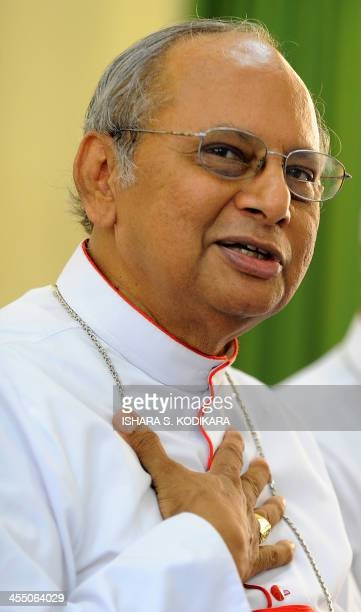Church opposes cannabis export due to corrupt politics

The Catholic Church charged that projects such as commercial cannabis cultivation are absolutely inappropriate for a country like Sri Lanka, as it has a corrupt political culture where money and political power overrides the law.
Speaking to The Morning, Catholic Bishops’ Conference National Director of Communications Fr. Jude Chrishantha Fernando said: “We have come to know that the Government’s attention has been focused on the cultivation of cannabis for commercial purposes. The Catholic Church, including its head, Archbishop of Colombo Malcolm Cardinal Ranjith, has completely protested this. Our view is that such projects are not at all suitable for third-world countries like Sri Lanka.”
Although such projects can be implemented in other countries subject to a proper regulatory process, he said, it is however not possible to carry out such regulation in a country like Sri Lanka. He also said that the social decline caused by the implementation of such a project, particularly the adverse effects on children and youth, is several times greater than the economic benefit which could be gained through exporting cannabis.
“We know that in many matters, political power and money override the law. There are especially cases where even the law enforcement agencies like the Police are under the influence of money and the law is not implemented properly. Considering such cases, we do not think that cannabis cultivation will be conducted in a proper manner. When it comes to any issue, in the case of this project being implemented, those who have money and political power will escape the law, and it will be the poor and the innocent who will eventually be penalised,” added Fernando.
Cannabis, also known as marijuana, is a drug from the cannabis plant. Native to Central Asia and the Indian subcontinent, the cannabis plant has been used as a drug for both recreational and entheogenic (designated psychoactive substances employed in culturally sanctioned visionary experiences in ritual or religious contexts) purposes, and in various traditional medicines. Tetrahydrocannabinol is the main psychoactive component of cannabis, which is one of the 483 known compounds in the plant, including at least 65 other cannabinoids, including cannabidiol.
The Poisons, Opium and Dangerous Drugs Ordinance of 1935 in Sri Lanka, or Ceylon as it was known then, criminalised cannabis. However, the Ayurveda Act, No. 31 of 1961 as Amended by Act, No. 5 of 1962, has allowed Ayurvedic physicians to obtain cannabis for the manufacture of their medicinal preparations. Against this backdrop, several Government representatives including Minister of Tourism Diana Gamage recently said that Sri Lanka should legalise commercial cannabis cultivation as a measure to generate substantial foreign exchange revenue for the country.
